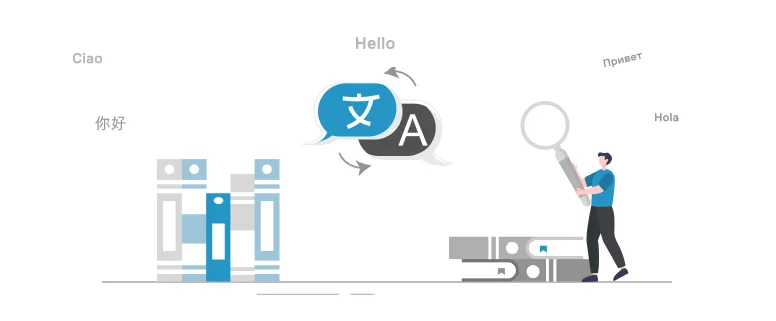Literal translation or free translation has been a controversial issue for a long time.
In some cases, literal or free translation is not a problem, such as “I like the movie.” can be simply translated as “我喜欢这个电影。”, which excludes the struggle for literal translation and free translation. Because in this case, literal or free translation is exactly the same.
However, English and Chinese have a great gap of meanings, which forces translators to choose between the literal translation and free translation. Actually, different people have different definitions about literal translation. In general, complying with the original text to a comparatively large degree can be seen as literal translation, while freeing from the original structure and just translating the meaning is considered to be free translation.
In order to deeply analyze these two terms, let’s look at a good example.
“The Negro lives on a lonely island of poverty in the midst of a vast ocean of material prosperity.”
Version 1: “黑人依然生活在物质富裕的汪洋大海中贫乏的孤岛上。” This is a more literal translation, we can see that uses the same images as the original, such as “物质富裕的汪洋大海”. Maintaining the metaphor of the author used is its merit. In fact, it is rather worse regard of reading level due to maintaining the original metaphor.
Besides, manner of writing of this translation is also a problem. Arranging “汪洋大海” with “物质富裕” is not a wise choice in terms of Chinese customs, in other words, it is inharmonious. In this point, we can use a little bit free translation style, ”黑人仍生活在贫困的孤岛上,尽管放眼四周,是一片繁华景象。”, which upgrades the reading level. Obviously, it doesn’t reflect the metaphor from the original sentence.
Actually, this kind of example is very common in translation. Using literal translation or free translation becomes a question for translators. However, we should remember a point that translation resources are not only from literatures in recent days.
Language structure is not the crucial element in economy, science, news, politics etc resources, therefore, we should greatly maintain the characters from the original texts. Another thing we should bear in mind is complying with Chinese.
If a translation is against Chinese customs, then it’s not a qualified translation in terms of its Chinese expressions, which means, in most cases, free translation is more preferred.
Read Also: Literal Translation and Free Translation





